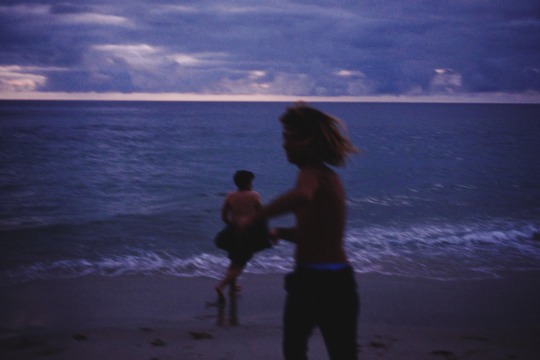redlovell
561 posts
Don't wanna be here? Send us removal request.
Text
ANALYSIS OF LANA DEL REY'S 'TROPICO'
The official description underneath the video describes it as a ‘tale of redemption’ and that it is…. <!— more —> I think overall it criticises a society that makes famous icons their gods and lives these empty monotonous lives shown by the boredom of Shaun’s job in a convenience store. It realistically depicts the lack of money many have in America and how this can cause people to turn to stripping and a criminal lifestyle. It is critical of how society revolves around money. The repeated shots of money floating around the strippers shows how central it is in this world. I can deduce this film is critical of the money because in the Bel Air scene when they are driving away from their old lifestyle it shows Lana throwing away her purse and pearls, symbolising a rejection of materialism.
The film uses well known cliches so as not to be too obscured about the meaning she is trying to portray. For example the garden of Eden is used symbolising a place without sin, a place of birth and origin. And in a sense these ‘icons’ like John Wane and Elvis were her origin as an artist. They inspired her. These icons do express a wider point about societies obsession with icons as Lana extrapolates & exaggerates it to make a point by repeating ‘dear John forgive us our sins’ and calls him the creator of the universe. i.e. celebrities have become our gods. She’s exposing a truth in a very explicit way. Some may see it as sacrilegious, but that is what society is doing in a sense, worshipping celebrities.
America is obviously a theme because hey it’s Lana Del Rey who is obsessed with Americana in her songs. She’s going to be making judgements about American society in this; so, to establish more about the society she has come from, she uses John Wane as a symbol. America extols the virtues of toughness and independence: “I don’t wanna hear you crying, I don’t wanna hear you belly aching.” In the garden of Eden, Tropico interestingly juxtaposes the lines of John Wane and Jesus, to show their contrast and the conflicting ideas they present. John Wane says “never say you’re sorry because sorry is a sign of weakness”, which is a common american attitude, and this overlaps with Jesus saying “forgive us our debts as we forgive those who trespass against us”, which goes against this American notion of being self-sufficient and strong, because sorry shows weakness; forgiveness shows weakness. This is an early depiction of how religion goes against societal values.
Marilyn Monroe is a sex symbol in American society: “sex is a part of nature, I go along with nature”, which depicts many liberal American’s attitudes towards sex, which is a key theme in the film. The sexuality of women is portrayed, and it is shown to be for the gratification of men, however Lana doesn’t necessarily see this as right. She and her boyfriend played by Shaun are never seen kissing which depicts a purer love without sexuality, in contrast with the highly sexual society. Perhaps their love is deeper than just sex. In the garden of Eden, Lana turns Shaun around and gets on top, which, aside from being hot, shows her control and dominance over him, which is a more feminist idea. The speed slows down when she gets on top and it shows Marilyn smiling.
Also quite feminist, is that she differs from the Garden of Eden story in one main feature. Unlike in the original biblical tale, I don’t see it as Eve (Lana) who tempts Adam (Shaun) with the fruit. After Lana collapses, Shaun feels her pulse and seems genuinely worried about her. Even though he knows eating the fruit will result in his death, like her, he does it anyway - “man you’ve got to be crazy” - yeah, crazy for her. Almost as if he eats the fruit to join her in death, because he loves her, not because he was tempted by her. This differs from the typical portrayal of Eve as a ‘temptress’ and the stereotypical sexist idea that it’s her fault that Adam sinned because she tempted him.
When reciting parts of Walt Whitman’s ‘Body Electric’ she says “and the man that comes from woman” which contradicts the idea that Eve was made from Adam in the Garden of Eden. It is a more feminist idea.
The apple, probably a metaphor for sex, or just sin in general is shown throughout the film. You might wonder why there are all these random clips of Shaun juxtaposed with Lana. Well, did you notice that he’s repeatedly shown eating an apple? This is a motif and links his character with Adam, that he originates from Adam, and he too carries this sin with him. It serves as a reminder of Eve’s and Adam’s fall from grace, and shows - ‘look where they are now, look what sin has gotten them’. There is also foreshadowing throughout the film as Shaun keeps playing with guns and aiming them etc, which foreshadows his participation in the gang robbery and creates a sense of tension.
During God’s and Monsters we see more of this hectic ‘ungodly’ lifestyle of theirs. There are clips of them dancing with the face-painting of skulls, which is common in the Mexican holiday for The Day of the Dead ‘Dias de Los Muertos’. This Christian festival serves as a reminder of where we’ll all end up eventually - dead. I think Lana uses this image of our own mortality to juxtapose the sinful way of living with the idea that there’s something deeper. We have souls. “No one’s gonna take my soul away”..
Along with images showing their way of life, stuck in this sinful world, we see how Shaun is getting more and more frustrated, with him screaming and shooting guns… There’s a beautiful emotion behind it when she sings “you’ve got that medicine I need”, which is speaking about how society looks to drugs and sex and all these things as medicine for their aching soul, to fill the emptiness inside. I think it also relates to her on a personal level, as do all her lyrics.
She sings about how “God’s dead” which shows the progression from the Garden of Eden stage; God is no longer with them and they are in the midst of sin and corruption. Having studied metaphysics herself at uni, and being quite philosophical, she is referencing Nietzsche, who is notable for stating “God is dead”. She also puts a twist on the philosopher Plato’s idea that “art imitates life” as she says “life imitates art” - and we know that Lana holds art to a very high esteem and wished to make her life into a work of art (see ‘Ride’).
She sings about “innocence lost” which is another direct correlation with the garden of Eden. In the garden of Eden they were innocent. Then they ate the apple and they weren’t anymore. There are even visual flashbacks to the garden when she’s singing this line.
There are also clips in ‘Gods and Monsters’ that show an intimate scene of Lana and Shaun in the dark, looking at a small light, which I think is highly symbolic of their spiritual state. They’re in the darkness, but trying to find the light. Everyone wants to be happy, right? Even Shaun after the song tries to comfort her telling her “it won’t always be like this.” He subsequently robs the people, but with the intention of making life better for him and his girl. He loves her. And Tropico is also a story of their love. Their love saves them. Christianity teaches that love is the greatest of all things after all.
We see the film zoom out to look at the world from space, reminding us that Lana is commenting on society and that earth is a planet in space; there must be a deeper meaning… We see their lives of sin culminating in the call girls pleasuring the men… Lana’s VoiceOver is to be heard as she reads an excerpt from Ginsberg’s ‘Howl’, a poem which attacks society for its materialism and complacency. This fits perfectly with the sexual scene… “I saw the best minds of my generation destroyed by madness; starving, hysterical naked”.
The little party is interrupted when Shaun and the other gangsters attack. As one of them shoved a person down with a gun to their head, a cross around his neck swings into view. And a shot of Jesus is shown…as if to highlight that his actions aren’t moral at all; even though he wears a cross, the cross has lost its meaning in society…
We see the scary violence ensue, and it is all quite realistic and high-octane. One is left aghast and afraid at the commotion these criminals have made. Then Lana starts to speak in a VoiceOver: “and so from being created in His likeness to being banished for wanting to be too much like Him, we were cast out, and the Garden of Eden became transformed into the Garden of Evil, Los Angeles: the city of angels: the land of gods and monsters.” Here Lana summarises the tale of Tropico so far and explains how the land of Gods and monsters is a euphemism for American society, in particular Los Angeles, which is Spanish for the city of angels. They are surrounded by good and evil, Gods and Monsters, but as angels they have free will to decide their fate. And she does, she goes on to reject the life they had been living.
At the end of this ‘Paradise Lost’ segment, there is a clip of Mary asking for forgiveness, perhaps to show that Lana and Shaun had repented.
We then see John Wane talking about how much he loves America. Perhaps Lana is making a point that America isn’t all bad…and this positive Americana leads on to a more positive segment of the story, with beautiful thematic music. We see Lana and Shaun driving through a sunny American countryside; they aren’t in the city anymore, they are close with nature. Lana has thrown away her purse and necklace. They park their car and now they begin to undress each other although it is not at all sexual and nothing is shown. That isn’t the point. The point is that they are taking off black clothes and putting on white ones, symbolising that they’ve rejected evil and are embracing good; the white symbolises their purity. Perhaps even more significant is that they helped each other undress and dress again. They helped each other through everything, even to leave their old life behind, to become better people. This scene of them putting on white garments is spliced with a baptism scene, in case the symbolism wasn’t clear enough. They are being washed clean of their sins. And they are cleansing each other which shows the altruistic, mutually beneficial love they have.
Then the beautiful song Bel Air plays and they bask in each other’s presence as they frolic in the wheat. I must applaud Lana’s acting here as she looks at Shaun with such love - “you’re Devine” - and it really gets across the emotion of the song. The song’s lyrics capture the character evolution and progression of the story: “I don’t want to be bad, I won’t cheat you no more”… She’s turned a leaf and wants to be good. “Walk in the way of my soft resurrection”… She’s been raised from the dead, figuratively speaking. She’s been ‘born again’ if you will.
They then go on to ascend into heaven, lifting up into the sky in each others arms. This being symbolic that they have truly transformed and have elevated back to a state of grace. A tale of redemption indeed. http://youtu.be/VwuHOQLSpEg
76 notes
·
View notes
Photo

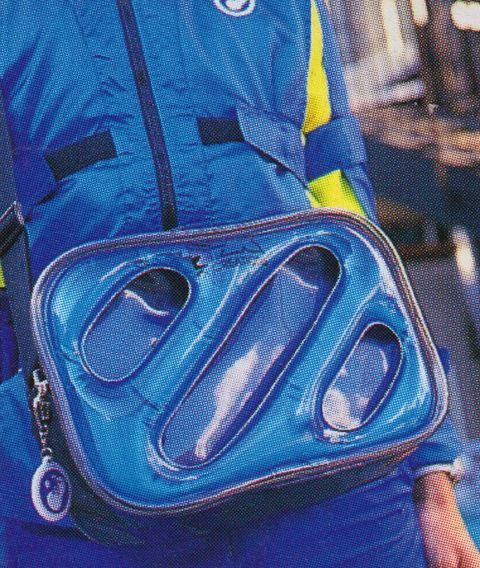
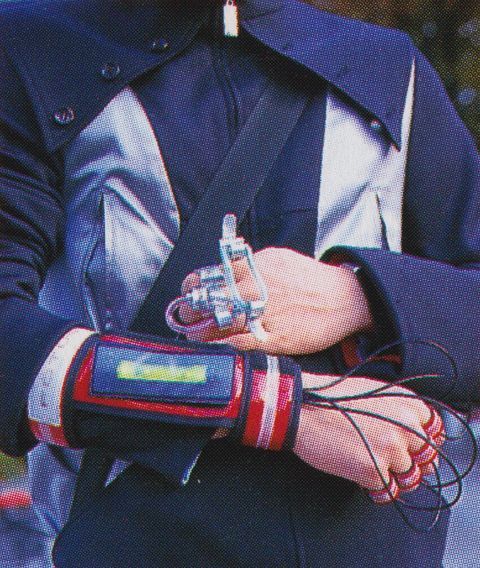
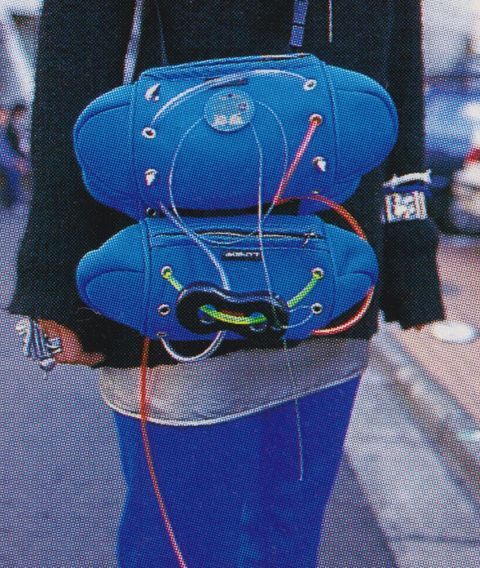
Cyberdog and Fotus on Kerouac magazine (1990s)
Scanned by zerocoolarchive
Source:https://www.instagram.com/p/CGTCgo7F34O/
1K notes
·
View notes
Photo

Gaetano Pesce Sitdown Lowback Armchair 1975
Quilted dacron fabric and polyurethane
2K notes
·
View notes
Photo









TINASHE CR FASHION BOOK // 2020 photographed by Pegah Farahmand
2K notes
·
View notes
Photo
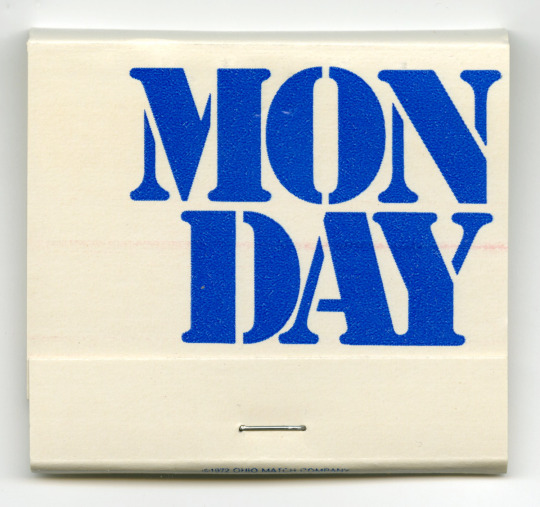




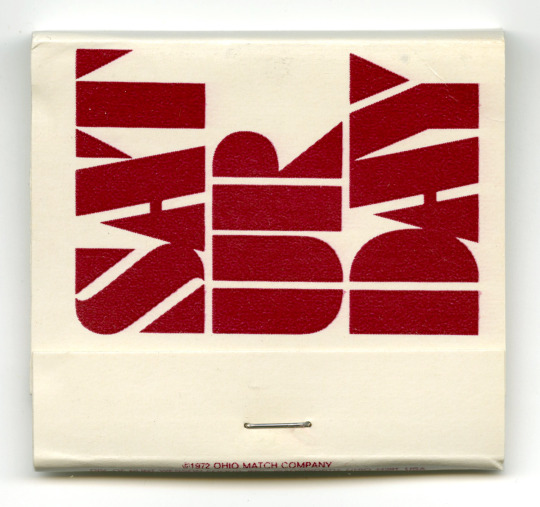

Mod matchbooks by the Ohio Match Company, 1972.
Via peculiarmanicule.com
17K notes
·
View notes
Photo
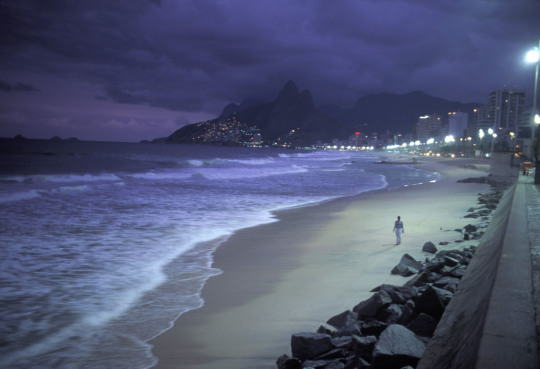

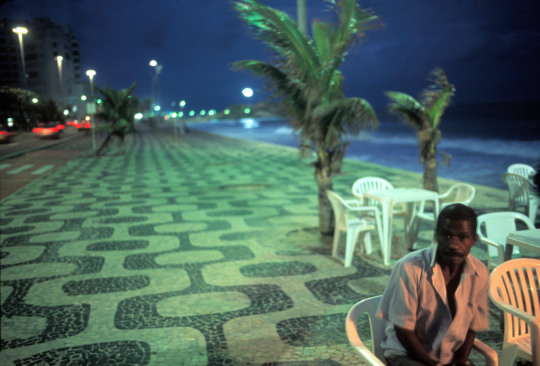

Brazil, Rio de Janeiro 2000, David Alan Harvey.
73K notes
·
View notes









